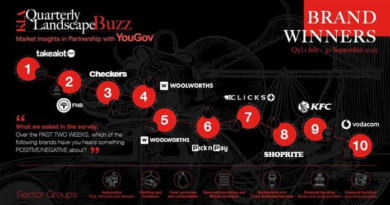Post elections: Getting back to basics – SA is open for business
There’s been a dismaying dip in business confidence in the first quarter of 2019 that analysts will tell us is unsurprising ahead of any election. That may be so, but at poll times we tend to lose sight of the fact that the democratic process and the process of economic growth are not just about elections; as a nation they should form the fabric of our daily life.
Joff van Reenen, director and lead auctioneer at High Street Auctions |
This election has now come and gone and we are forming a new government to lead South Africa. While we pause for this regroup, perhaps we should also pause to review the path forward that will become the blueprint for the country for the next four years.
At its core, that blueprint should be one of getting back to basics and working as a collective on policy-making and execution levels to tell the world – with confidence – that South Africa is again open for business.
Many may be surprised that the term “global village” was coined in 1962 rather than the 21st century, because it’s only been since the turn of the millennium that we’ve truly started living it.
Nearly 20 years on the fact is inescapable that no business or country can survive anymore in splendid isolation and South Africa isn’t the exception. Without foreign direct investment backed by long-term foreign investor confidence we will not see economic growth.
Property market
South Africa’s property market, according to Lightstone analytics, comprises nearly eight million registered properties and the residential component alone is valued at R5.4tn. One of the surest measures of confidence in a country’s economy is how fast its property market moves, and whether sale prices being achieved are in accordance with the true value of the real estate being transacted.
Despite spectacularly sluggish national economic performance over the past two years in particular, money has still been moving through the property market fairly fluidly but it doesn’t take an oracle to predict that without GDP growth this flow is ultimately unsustainable.
And while the spend on property is still there, the market is increasingly weighted towards domestic purchasers. The volume remains, but the percentage of foreign prospectors, specifically, is lower.
South Africa dodged a bullet in March when Moody’s declined to issue a scheduled ratings report that would most likely have toppled the country entirely into junk status after the previous year’s pronouncements by Fitch and S&P. The newly elected government now technically has until November to nail its colours to a very sturdy economic turnaround mast and six months is the equivalent of “tomorrow” in macro-economic terms.
So while we pause for this post-election political regroup, what is it that the economy – the country – needs?
We need policies that invite investment, those that streamline nightmare red tape that makes it difficult for foreign companies to do business in South Africa and we need a totally pro-foreign investment economic strategy.
We need to prove that the government is actively prepared to work with rather than against or in tandem to the private sector in every arena to rocket-launch rather than kick-start the job creation process again. We need consumers to feel confident about putting their money back into the country, and we need state-owned enterprises that contribute to rather than detract from economic growth.
It’s a tall order, but South Africa is worth it. Some 25 years into democracy this country remains an unrealised world of potential; one that we need the government to help unlock for the good of everyone fortunate enough to call South Africa home.
May 2019 is the dawn of a new government. It also has to be the dawn of a new economic chapter for South Africa, because not one business, not one citizen, can afford to wait anymore.
Source: bizcommunity.com


